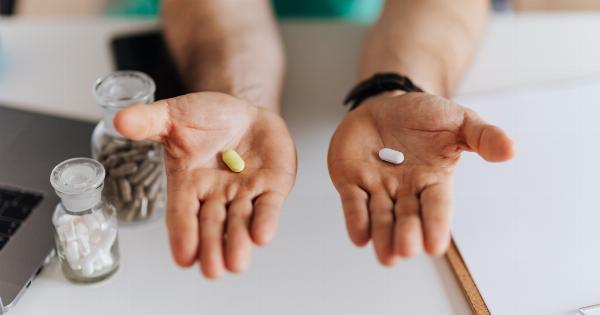World Health Day is celebrated on April 7th every year, marking the anniversary of the founding of the World Health Organization (WHO) in 1948.
This day presents an opportunity to raise awareness about pressing health issues and mobilize action to improve health outcomes globally. One crucial aspect of ensuring public health and safety is the use of transmitters.
What are Transmitters?
Transmitters are electronic devices that emit radio signals, enabling the transmission of data or information wirelessly. Their importance in various fields cannot be overstated, including healthcare.
These devices play a vital role in collecting and transmitting real-time health data, allowing for timely interventions and informed decision-making.
Monitoring Vital Signs
Transmitters are extensively used in healthcare to monitor vital signs such as heart rate, blood pressure, and body temperature. These devices are connected to sensors that collect data from patients and transmit it wirelessly to medical professionals.
This constant monitoring enables healthcare providers to identify any abnormalities, detect potential health risks, and take appropriate measures promptly.
Remote Patient Monitoring
Transmitters have revolutionized patient care through remote patient monitoring systems. These systems allow healthcare professionals to monitor patients’ health status from a distance, reducing the need for in-person visits and hospital stays.
With the help of transmitters, patients can receive personalized care while staying in the comfort of their own homes. This is particularly beneficial for individuals with chronic conditions, as it enhances their quality of life and reduces healthcare costs.
Emergency Medical Services
During emergency situations, transmitters play a critical role in ensuring timely medical assistance. Emergency medical services (EMS) rely on transmitters to transmit distress signals or communicate vital information to healthcare providers.
This allows for a swift response and expedited medical attention, potentially saving lives in critical situations.
Tracking and Tracing
In the context of global health, transmitters play a crucial role in tracking and tracing the spread of infectious diseases.
By tracking the movement of individuals and collecting data on their health conditions, authorities can identify potential disease clusters and take necessary preventive measures. Transmitters help in contact tracing, enabling health officials to locate and notify individuals who may have been exposed to a contagious disease.
Telehealth and Telemedicine
The increasing popularity of telehealth and telemedicine services has further highlighted the importance of transmitters in the healthcare sector.
Through these services, individuals can consult with healthcare professionals remotely, saving time and resources. Transmitters facilitate smooth communication, ensuring a seamless exchange of medical information and enabling accurate diagnoses.
Medical Research and Data Collection
Transmitters are invaluable in medical research, facilitating the collection of large-scale data for studies and clinical trials. These devices can transmit data from wearable sensors, implantable devices, or even lab equipment.
The use of transmitters in research allows for real-time data recording, enhanced accuracy, and the ability to remotely monitor participants, making studies more efficient and impactful.
Ensuring Safety in Healthcare Facilities
Transmitters also play a significant role in maintaining safety and security in healthcare facilities.
Wireless transmission of data ensures that critical information, such as patient records and medication orders, is securely shared among healthcare providers. This reduces the risk of errors and enhances patient safety. Additionally, transmitters enable the monitoring of medical equipment and assets, ensuring their proper functioning and preventing theft or loss.
Facilitating Global Collaboration
The use of transmitters facilitates global collaboration in healthcare. Researchers, healthcare providers, and organizations can share data, best practices, and expertise across borders seamlessly.
This collaboration is crucial, especially during global health crises, where rapid information exchange and joint efforts are essential for effective management and control of diseases.
Contributing to Telecare and Assisted Living
Transmitters play a significant role in telecare and assisted living, enhancing the quality of life for elderly individuals and individuals with disabilities.
These devices enable remote monitoring of individuals’ well-being, detecting falls, emergencies, or health anomalies. Transmitters can trigger alerts to caregivers or emergency services, ensuring that prompt assistance is provided, even when individuals are unable to ask for help.
Conclusion
Transmitters are invaluable tools in the field of healthcare, contributing to improved patient care, disease control, research, and global collaboration.
On World Health Day, it is essential to recognize and appreciate the significance of these devices in ensuring public health and safety. The continued advancement and utilization of transmitters in healthcare will undoubtedly lead to further breakthroughs and innovations, ultimately benefiting individuals and communities worldwide.




























